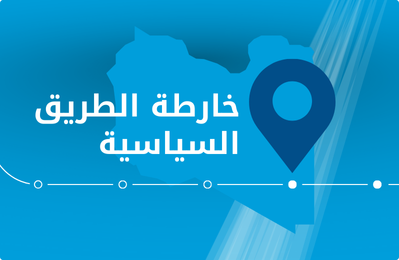Twenty-six young women from across Libya graduated from across Libya as part of the Mission's training programme by presenting their final projects focusing on educating schoolchildren on climate change to the Minister of Women, the Ministries of Youth and Education, representatives of a number of embassies as well as the Deputy Special Representative of the Secretary-General, Resident and Humanitarian Coordinator.
The graduation ceremony, which was held on World Environment Day, saw five teams of young women present various awareness campaigns related to climate change, which will be used by the Ministry of Education, with the support of UNICEF, to educate school children across Libya.
The Deputy Special Representative of the Secretary-General of the United Nations, Ms. Georgette Gagnon, explained that "Raedat was launched with a clear vision of empowering young people, especially young women, to play an active role in shaping their own future, the future of their local communities and thus the future of Libya." "By equipping young women with the tools to influence decision-making processes, we invest in creating women leaders who can guide policymakers, mitigate conflict drivers and bring about meaningful change to achieve positive outcomes," said Ms. Gagnon.
Over the past year, 30 young women between the ages of 18 and 30 participated in bimonthly trainings to build their communication, leadership and advocacy skills, and to increase their knowledge of elections, human rights and women's legal rights in Libya.
Ms. Nour Ahmed Amir, a 24-year-old from Zawiya city, said she and her colleagues aim to "contribute to preserving the environment and enabling the new generation to shape a greener future." Milen Azabi, a 28-year-old mother of three from Zuwara, added: "Our goal is to ensure that these children grow up in a better and more sustainable environment than the one we live in."
All campaigns supported Sustainable Development Goal 13 on climate change, ranging from increasing plastic waste recycling, protecting Tripoli's coastal environment, afforestation of the school environment, and ensuring the protection of schools' water supplies. One campaign developed a Libyan environmental superhero – Medawar – who will help children get involved in the idea of increasing plastic and organic waste recycling.
"By raising awareness about climate change among school children, these girls are planting the seeds for a more environmentally conscious generation – not just a Libyan generation but a global generation, which is essential for sustainable peace," said Ms. Gagnon, Deputy Special Representative of the UN Secretary-General.
Aisha Miloud, 26, from Tripoli, said: "With the end of this training, I feel a strong sense of responsibility to apply what we have learned to benefit our communities and colleagues in our professional and personal lives."
Many young women stressed that the training improved their skills and careers and raised their confidence. Salsabil Toshi, a 19-year-old from Zuwara, said: "We arrived on the first day as thirty young women from different cities and backgrounds who don't know each other. But today we graduated as thirty sisters who learned from each other as much as we learned from training."
Young graduates will continue to participate in the Pioneers program, where they will become mentors for the next group of young women who will begin training in September. Applications for the course will open in July.
 حفظة السلام التابعين للأمم المتحدة
حفظة السلام التابعين للأمم المتحدة UN
UN



